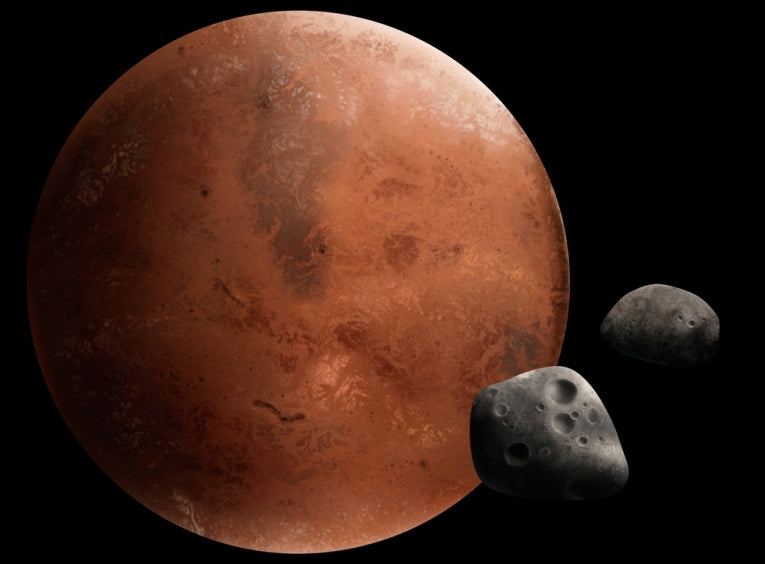Russian Space Research has been given a shot in the arm. Mercury, Venus and even Europa are in their sights. But first the return to the scene of their previous excursions (in 1988 and 1996) - the Martian skies! Accompanied by a Chinese satellite, Moscow is sending a probe on Tuesday, 8th November to the asteroid-like moon, Phobos.
Based on the Luna (Moon) probe, it has, naturally, mostly new instruments. In the journal, Nature, Roald Sagdeev, former director of the Space Research Institute (IKI) in Moscow, which has developed most of the twenty science instruments on the pay-load thinks positively, "It would open the door for major international missions." Sagdev, now at the University of Maryland in College Park, says Russia will keep trying to return to Mars and its moons.
The probe will return in 2014 with a rock sample, in an effort to confirm or deny theories that the surface of Phobos is of Martian origin. Formed in the early solar system, Phobos is thought to have orbited Mars instead of joining the asteroid belt between that planet and Jupiter. It has a carbonaceous core with, it is thought, that surface with Martian origins.

Russian space rocket via Shutterstock
Rocketing off from the Baikonur Cosmodrome in Kazahkstan, Alexander Zakharov, is the project scientist for the mission at IKI in Moscow. Alex says the probe should arrive near Mars in October, 2012 and sample Phobos a few months later. The return trip will be fraught with problems. If Phobos-Grunt does return to Earth with traces of Mars embedded in its cache of a few hundred grams of pebbles and dust, the humble 5-billion-ruble mission (US$163 million) could end up performing basic aspects of a Mars sample-return mission. This figure compares well with a three-stage mission envisaged by NASA that would cost $8.5 billion. Don't be mis-led, the name Phobos-Grunt in Russian translates into, "Phobos soil." We can expect precious little of that from the igneous rock that makes up the moon, and the faint hope of organic carbon? Well, is there life on Mars and could its molecules survive the explosions that would bring them as debris to Phobos? Yes, you guessed right!










